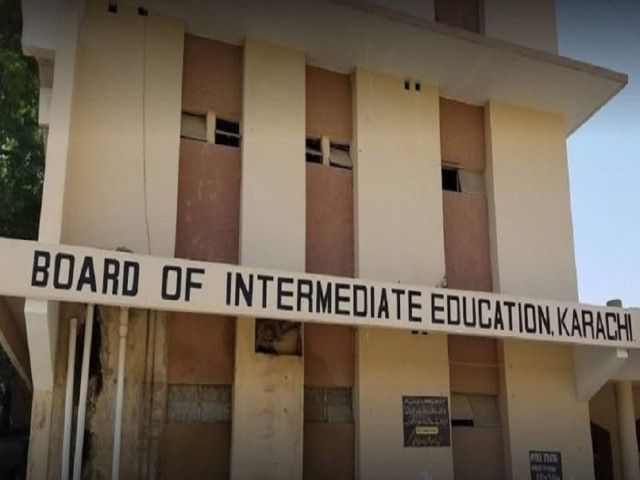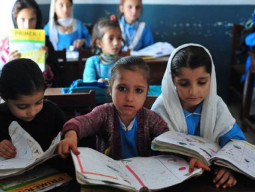
Preparations are underway in Sindh for the introduction of e-marking in the 2025 annual matriculation and intermediate exams. Both the Board of Secondary Education Karachi (BSEK) and the Board of Intermediate Education Karachi (BIEK) have finalised plans to embrace this digital assessment method, which will be applied to the exams for the current academic year.
The decision follows a training workshop on e-marking held last week at the Federal Board in Islamabad. Attendees from Karachi included BSEK Controller of Examinations Zaheeruddin Bhutto and BIEK Controller of Examinations Zareena Chaudhry. E-marking will be introduced in the 2025 exams for students in Class IX and Class XI.
For the matric level, e-marking will initially be implemented in the Biology and Computer Science papers of Class IX Science faculty. At the inter-level however, e-marking will be used for the Mathematics paper of the Science General faculty.
BSEK Chairman Sharaf Ali Shah confirmed the e-marking initiative while speaking to The Express Tribune. He said that the Sindh government had made this decision, and the boards were in the process of implementing it. Preparations have already begun, and special exam papers, distinct from the regular ones, would be printed for e-marking, he added. Moreover, mock exams will be conducted on a limited scale to familiarise students with the new format and the specific requirements for writing their answers in the e-marking sheets.
Despite the enthusiasm surrounding the e-marking, Shah raised concerns about the limited resources provided by the Sindh government. Around 400,000 students sit the matric exams every year in Karachi, resulting in a large volume of answer scripts. The current machinery -scanners and printers - was only sufficient for a limited-scale trial of e-marking, making it challenging to assess all answer sheets efficiently.
BSEK Director of Examinations Zaheeruddin Bhutto shared details on how e-marking will function. Students would be required to write their answers within specific lines on the specially designed exam papers. Examiners would be instructed not to assess any answers written beyond these lines. After the answer sheets are scanned, the questions and answers will be digitised and assigned to different teachers for evaluation through the e-marking software. This process will allow the answers to be reviewed separately by different examiners, ensuring a more streamlined and efficient assessment.
While speaking to The Express Tribune, BIEK Controller of Examinations Zareena Chaudhry said that the introduction of e-marking for the inter level would begin with the Mathematics paper for both the Science and General faculties. She explained that unlike traditional methods where full answer scripts are handed to a single teacher, e-marking would allow questions to be assigned to separate examiners via the software. This could either involve distributing individual answers to different teachers or having a single examiner assess the entire answer sheet.
The Sindh education boards have already set the dates for the 2025 annual exams. The matric exams are scheduled to begin on March 15, 2025, while the inter exams will commence on April 15, 2025. As the e-marking system is tested and refined, both boards are focused on ensuring a smooth transition to this new method of assessment.



1734696044-0/ceo-(1)1734696044-0-165x106.webp)

1734694627-0/kim-(13)1734694627-0-165x106.webp)

1734703057-0/featured-image-2-(2)1734703057-0-270x192.webp)



1734680114-0/Express-Tribune-(4)1734680114-0-270x192.webp)
1734511806-0/Untitled-design-(5)1734511806-0-270x192.webp)
1734587529-0/Express-Tribune-(1)1734587529-0-270x192.webp)

1734606611-0/Express-Tribune-(8)1734606611-0-270x192.webp)

1734468458-0/Copy-of-Untitled-(50)1734468458-0-270x192.webp)






COMMENTS
Comments are moderated and generally will be posted if they are on-topic and not abusive.
For more information, please see our Comments FAQ